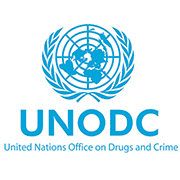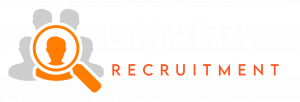
General
Description of assignment title: Communication Specialist
Assignment country: Senegal
Expected start date: 08/07/2023
Sustainable Development Goal: 16. Peace, justice and strong institutions
Volunteer category: International UN Volunteer Specialist
DoA reserved for persons with disabilities: No
Host entity: UNODC
Type: Onsite
Duration: 12 months (with possibility of extension)
Number of assignments: 1
Duty stations: Dakar
Details
Mission and objectives
The United Nations Office for Drugs and Crime (UNODC) was established in 1997 and in Vienna, Austria. UNODC is s a world leader in the fight against illicit drugs and international crime. It operates through 54 regional offices, covering more than 150 countries. Its regional office for Western and Central Africa (ROSEN) is located in Dakar, Senegal and has been active in the region for more than 20 years. Currently ROSEN covers 22 countries and has established 13 field offices.
Context
The UNODC Sahel Programme supports the development of accessible, efficient, and accountable criminal justice systems to combat illicit trafficking drug trafficking, organized crime, terrorism, and corruption in the region by: Promoting the implementation of international conventions with governments and foster regional cooperation on counter-terrorism with authorities and prosecutors; Preventing illicit trafficking of drugs, weapons, human beings and smuggling of migrants by enhanced detection and interdiction at airports and land borders; Improving justice systems by promoting integrity safeguard mechanisms and Police – Justice cooperation through anti-corruption and anti-money laundering training; Enhancing scientific evidence and investigation by providing authorities with appropriate laboratories and firearms control measures; Supporting access and treatment of people in contact with the judicial system through strengthening the frameworks of human rights, legal aid, victim and witness protection and prison reform. The Sahel Programme has been developed in support of the UN Regional Integrated Strategy for the Sahel (UNISS), which the UN Secretary-General launched in June 2013 Home – UNISS (unis-sahel.org). The UN Integrated Strategy for the Sahel revolves around three broad area of support: Governance, Resilience and Security, formulated as strategic goals and organized according to key themes. The implementation of UNODC activities through the Sahel Programme is coordinated with other United Nations entities participating in the United Nations Integrated Strategy for the Region, including the United Nations Office for West Africa and the Sahel (UNOWAS), the Department of Peace Operations (DPO), the United Nations Development Programme (UNDP), the Office of the High Commissioner for Human Rights (OHCHR), UN Women and the offices of the Special Representative of the Secretary General and the Head of Mission of MINUSMA, as well as with other technical and financial partners present in the region (European Union including the EUCAP Sahel missions, INTERPOL, GIZ, Expertise France, etc.). The Sahel Programme is supported by contributions from Austria, Belgium, Canada, Denmark, France, Germany, Japan, Luxembourg, Monaco, the Netherlands, Norway, Spain, Sweden, the United Kingdom, and the United States. For more information, please visit our website: https://www.unodc.org/westandcentralafrica.
Task description
Within the delegated authority and under the supervision of the Sahel Programme Coordinator, the UN Volunteer Communication Specialist will support the Sahel Programme in the development of its communication and visibility, at a programme and project level. The communication specialist is expected to perform the following specific tasks:
- Actively manage the production of creative and compelling communication material for the Sahel Programme (WebStories, Videos, Social media posts, Human interest stories…) and other documentation as required;
- Manage and keep up to date the Sahel Programme social media accounts (Twitter, Facebook, Instagram, and Sahel Programme web page);
- Support the improvement of the design of Sahel Programme communication material (Sahel Programme Overview, Sahel Programme Annual Report, folders, notebooks…);
- Liaise with communication service providers to oversee the technical specifications, design and overall quality of communication material in all Sahel countries;
- Actively support the Sahel Programme in expanding its visibility by proposing new outreach platforms and strategies (social media or other media platforms);
- Participate in briefings and meetings to understand the programme, context, and activities;
- Design specific projects’ brochures/flyer, presentations, and other information material for donors and other stakeholders;
- Organize and keep up to date the SharePoint with all relevant communication material, to facilitate the use of all project managers;
- Support project managers in the design of project activities’ communication material (flyers, roll-ups, banderoles, etc);
- Provide substantive and logistical support at events, such as meetings, conferences, and workshops;
- Uploading photographs to online databases;
- Undertake duty travels as and when required;
- Perform other work-related duties as required.
Eligibility criteria
Age: 27 – 80
Nationality
Candidate must be a national of a country other than the country of assignment.
Requirements
Required experience
3 years of experience in developing communication material, managing and producing web content and high-quality videos and photos, ideally for an International Organisation, is required.
- Experience in graphic design software, audio-visual material elaboration, Canva, Adobe Photoshop, Adobe Illustrator is required.
- Experience in West Africa is desirable;
- Good creative skills;
- Accuracy and professionalism in document production and editing;
- Excellent interpersonal skills; culturally and socially sensitive; ability to work inclusively and collaboratively with a range of partners, including grassroots community members, religious and youth organizations, and authorities at different levels; familiarity with tools and approaches of communications for development;
- Ability to work and adapt professionally and effectively in a challenging environment; ability to work effectively in a multicultural team of international and national personnel;
- Solid overall computer literacy, including proficiency in various Microsoft Office applications (Excel, Word, etc.) and email/internet; familiarity with database management; and office technology equipment;
- Self-motivated, ability to work with minimum supervision; ability to work with tight deadlines;
Area(s) of expertise
Development programmes, Communication, Information technology
Driving license
–
Languages
French, Level: Fluent, Required English, Level: Fluent, Required
Required education level
Master degree or equivalent in Communication, Public Relations, Digital Marketing, Graphics Design, or other relevant fields
Competencies and values
- Professionalism: demonstrated understanding of operations relevant to UNODC; technical capabilities or knowledge relevant or transferrable to UNODC procedures and rules; discretion, political sensitivity, diplomacy and tact to deal with clients; ability to apply good judgement; ability to liaise and coordinate with a range of different actors, especially in senior positions; where appropriate, high degree of autonomy, personal initiative and ability to take ownership; resourcefulness and willingness to accept wide responsibilities and ability to work independently under established procedures; ability to manage information objectively, accurately and confidentially; responsive and client-oriented;
- Integrity: demonstrate the values and ethical standards of the UN and UNODC in daily activities and behaviours while acting without consideration of personal gains; resist undue political pressure in decision-making; stand by decisions that are in the organization’s interest even if they are unpopular; take prompt action in cases of unprofessional or unethical behaviour; does not abuse power or authority;
- Teamwork and respect for diversity: ability to operate effectively across organizational boundaries; excellent interpersonal skills; ability to establish and maintain effective partnerships and harmonious working relations in a multi-cultural, multi-ethnic, mixed-gender environment with sensitivity and respect for diversity; sensitivity and adaptability to culture, gender, religion, nationality and age; commitment to implementing the goal of gender equality by ensuring the equal participation and full involvement of women and men in all aspects of UN operations; ability to achieve common goals and provide guidance or training to colleagues;
- Commitment to continuous learning: initiative and willingness to learn new skills and stay abreast of new developments in area of expertise; ability to adapt to changes in work environment;
- Planning and organizing: effective organizational and problem-solving skills and ability to manage a large volume of work in an efficient and timely manner; ability to establish priorities and to plan, coordinate and monitor (own) work; ability to work under pressure, with conflicting deadlines, and to handle multiple concurrent projects/activities;
- Communication: proven interpersonal skills; good spoken and written communication skills, including ability to prepare clear and concise reports; ability to conduct presentations, articulate options and positions concisely; ability to make and defend recommendations; ability to communicate and empathize with staff (including national staff), military personnel, volunteers, counterparts and local interlocutors coming from very diverse backgrounds; capacity to transfer information and knowledge to a wide range of different target groups;
- Flexibility: adaptability and ability to live and work in potentially hazardous and remote conditions, involving physical hardship and little comfort; to operate independently in austere environments for protracted periods; willingness to travel within the area of operations and to transfer to other duty stations within the area of operations as necessary;
- Genuine commitment towards the principles of voluntary engagement, which includes solidarity, compassion, reciprocity and self-reliance; and commitment towards UNODC’s mission and vision, as well as to the UN Core Values.
Other information
Living conditions and remarks
The assignment will take place in the nation’s capital, Dakar, a family duty station (difficulty classification A) with possible assignments in different regions of the country. Living conditions in Dakar are good and the social climate is calm and safe. Senegal is an open country that enjoys social stability resulting from the proper functioning of state institution. The West African country also has a good level of infrastructure; however, electricity and water distribution can sometimes be volatile in Dakar and other cities across the country, forcing thus many officials to use generators. Senegal is also a popular tourist destination. The welcome and spontaneous hospitality of the Senegalese are part of the characteristic features of this West African country. The country is at Security Level 2, which corresponds to “Low”, apart from the natural region of Casamance (administrative regions of Kolda, Sédhiou and Ziguinchor) where acts of banditry are often reported but also the presence of elements of the Movement of Democratic Forces of Casamance (MFDC) and unexploded ordnance (UXO). All United Nations personnel must scrupulously respect the procedures and security recommendations of the UNDSS during their assignment in Senegal. Thefts and burglaries are the main incidents against United Nations personnel. Transport into town can be easily arranged by local taxis. There is no right to R&R in Senegal. Access to health services in Dakar is good. The yellow fever vaccine is mandatory and vaccination cards must be presented at the entrance. Vaccinations against meningococcal meningitis and hepatitis A and B are also recommended. Basic medicines are available in pharmacies, but it is recommended to bring specific medicines on prescription. Please note that to enter Senegal, a valid passport in required. Nationals of ECOWAS (Economic Community of West African States) do not need and entry visa. Nationals of other countries may need an entry visa or a long-stay visa. They must contact the nearest Senegalese representation. Senegalese Embassies and Consulates in various West African countries and other parts of the world issue visas prior to travel. You can check full entitlements at the duty station at https://app.unv.org/calculator. The complete UN Volunteer Conditions of Service is available at https://explore.unv.org/cos.
Inclusivity statement
United Nations Volunteers is an equal opportunity programme that welcomes applications from qualified professionals. We are committed to achieving diversity in terms of gender, care protected characteristics. As part of their adherence to the values of UNV, all UN Volunteers commit themselves to combat any form of discrimination, and to promoting respect for human rights and individual dignity, without distinction of a person’s race, sex, gender identity, religion, nationality, ethnic origin, sexual orientation, disability, pregnancy, age, language, social origin or other status.
